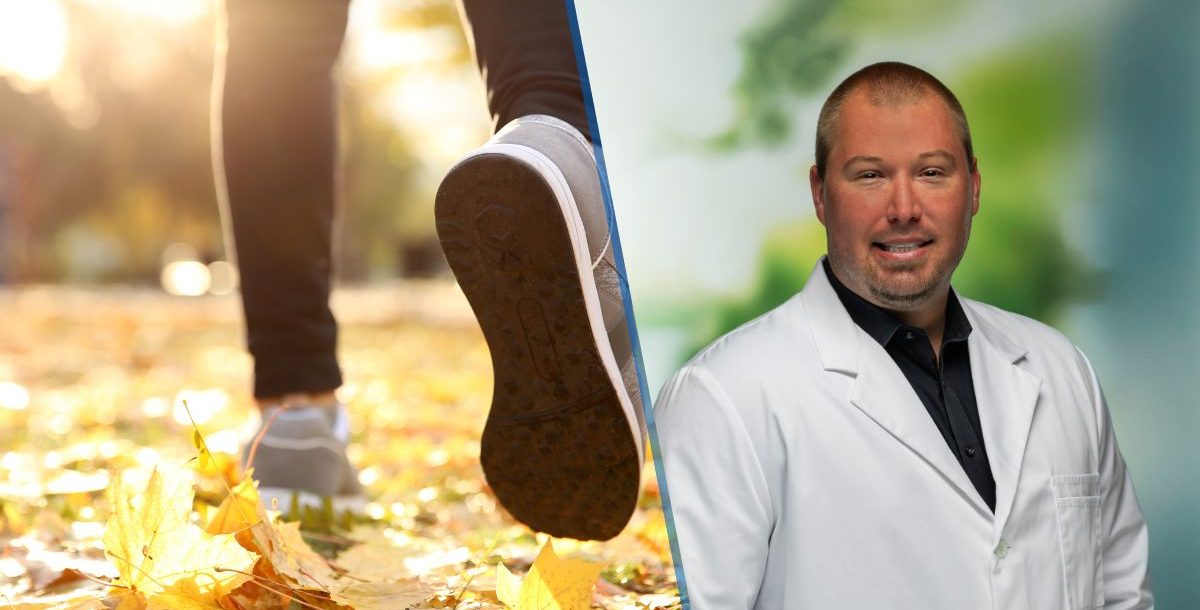The weather isn’t the only thing that changes as we progress through the seasons – your health begins to change, too!
In fact, Ryan Paulson, DO, a primary care physician at Bon Secours Paris View Family Practice, is already seeing an increase in patients as the colder months begin.
“There are a lot of things we look forward to each fall, like pumpkin spice lattes and football season, but the season also has drawbacks, such as decreased daylight and poor weather hampering our outdoor time,” he shares. “Good or bad, the changing of seasons can and will impact your health.”
It’s important to make sure you’re staying on top of your health this fall and winter season, and we’ve got some tips to help you do so.
First up are seasonal allergies.
Fall allergies are common this time of year, with ragweed being one of the top culprits. From watery eyes to an itchy throat, it’s important to try your best to avoid those allergy-inducing triggers when possible.
If you’re affected by seasonal allergies, try your best to avoid piles of wet leaves or other damp areas where ragweed and other allergens tend to be prevalent. And don’t forget about the indoors, too. Air conditioning filters can play a large role in exacerbating allergies – and replacing them regularly can help rid your house of dust mites and other factors that contribute to worsened allergy symptoms.
Next is muscle and joint pain.
If you struggle with arthritis, you may notice a big difference between the summer and fall/winter months. The change in barometric pressure can cause an increase in aches and pains, slow blood circulation and muscle spasms.
“One of the best tips I have for someone who struggles with arthritis is to take preventative measures,” Dr. Paulson advises. “Exercise daily – walking and strength training are especially important to keep us conditioned. Also, dress in layers so you can stay warm without getting overheated and keeping a heating pad around can be beneficial as well.”
The flu and other illnesses are starting to make their rounds.
The best thing you can do to avoid severe illness this fall and winter season is to be prepared. Go ahead and get your flu shot and make sure you have the most updated COVID-19 booster as well.
Other preventative measures to help keep you healthy include regular handwashing and cleaning and disinfecting surfaces around your house. Lastly, don’t let up on your normal healthy habits!
“As we head into the cooler months, my biggest piece of advice to staying healthy is to take care of yourself and those around you,” Dr. Paulson adds. “Take your daily vitamins, eat your fruits and vegetables and get your heart pumping.”
Injuries from seasonal activities are also common this time of year.
Wet leaves can create slippery surfaces, leading to slip-and-fall accidents while performing yard work. Additionally, repetitive motions, such as twisting and bending, can also lead to strains and sprains. Sometimes, a little ice is all you need to soothe the aches and pains, but more serious injuries may require being checked out by a health care professional.
For Halloween, many people are starting to take part in traditions such as pumpkin carving, but if you aren’t careful, this can lead to serious injuries that cut into your holiday fun. This season often sees a spike in the number of people treated for hand injuries due to slips and stabs. Use extra caution when carving to avoid an unexpected trip to get stitches.
And finally, mindfully avoid holiday pitfalls.
“We naturally stay indoors more during the cooler months and it’s easy to become less active,” Dr. Paulson warns. “That means we need fewer calories, but comfort food is synonymous with cooler temps and these dishes can often pack in more calories. So, this time of year – especially with the holidays – it can be tricky to maintain a healthy balance.”
The holidays can also lead to feelings of sadness or loneliness for some. Regularly communicating with friends and family, as well as waking up earlier to have more hours of sunlight, can also help keep spirits high. Try to get outside in the sunlight for 15 minutes per day to get your daily dose of vitamin D. Most importantly, talk openly about your mental health with others and don’t be afraid to admit if you need help from a health care professional.
Learn more about the primary care services we provide at Bon Secours.





